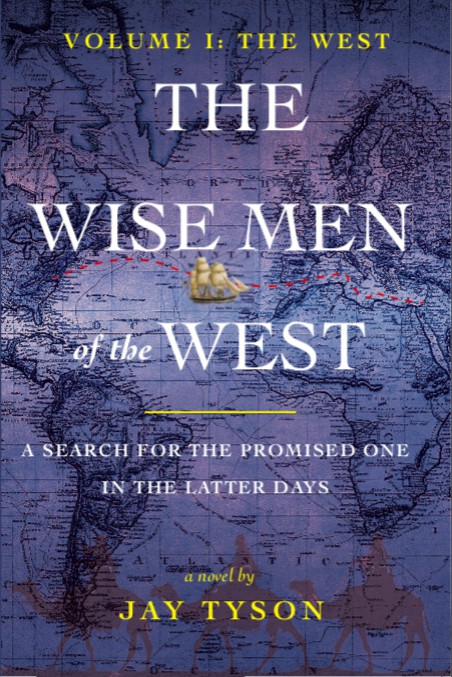Highlighting Australia
- As a proudly Australian initiative, we’re excited to showcase a collection of Australian stories, music, tributes and more.

Join activities, celebrations, study groups, spiritual empowerment and education programs for young people, and more.
Baha’i beliefs address essential spiritual themes for humanity’s collective and individual advancement. Learn more about these and more.

Featured in: The Declaration of the Bab
On a spring evening on May 22rd, 1844, Siyyid Ali-Muhammad announced that He was the bearer of a Divine Revelation whose aim was to prepare the world for “Him Whom God Shall Make Manifest,” a Messenger of God known as Baha’u’llah. Baha’is refer to Siyyid Ali-Muhammad by His title, the Bab, which is Arabic for “the Gate,” and that eventful evening is celebrated every year by Baha’is around the world.

It’s been exciting to showcase Baha’i-inspired novels on Baha’i Blog such as The Woman Who Read Too Much by Bahiyyih Nakhjavani, The Consulting Detective by Alan Manifold, or Persian Passion: Of Gods and Gargoyles by Tom Lysaght.
The Wise Men of the West (volumes one and two!) are new novels to hit the shelves by Jay Tyson. They’re about the prophesies and expectations of the return of Christ or the Messiah. We’re excited to hear from Jay about his novels, how they came together, and what he hopes readers will take away with them, long after they’ve finished reading the last page. Here’s what he shared with us:
I grew up as a Presbyterian, but always wondered why God had not spoken to us in almost 2000 years. So, in my youth, I was attracted to the Baha’i teachings and became a Baha’i before entering college. I studied civil engineering at Princeton and used my education to enable myself and my wife to serve as Baha’i pioneers to Liberia in the late 1970s. It also provided a foundation for work at the Baha’i World Centre, where we served from 1982 to 1989. Since then, we’ve raised two daughters in my wife’s home state of New Jersey and are now proud grandparents.
As a first-generation Baha’i, I’ve felt a special obligation to share something of my experience with other Christians who may be willing to tread a similar path. But I felt that a novel might be more interesting and more frequently read than a simple memoir.

This first novel is the tale of a search—geographical and spiritual—stretching across two years, three continents and seven religions. Inspired by the teachings of William Miller concerning the fulfillment of biblical prophecies in 1844, but thinking that Christ would appear as He appeared the first time—as a humble but spiritually enlightened teacher in the Holy Land—two seekers, Zach and James, set out in their search. The journey in 1843 in America, England, Rome and the Holy Land is the subject of Volume I—“the West”. Their decision to push eastward in 1844 to Karbila and Persia, together with their return and the reaction Zach receives in America, is covered in Volume II—”the East”.
The story is, in some respects, the mirror image of the story of the Wise Men of the East, who travelled westward from Persia, based on the prophecies of their own religion, in search of the Promised One of that age. Traveling with our leading characters provides an opportunity to “meet” many of the ideas about the coming of the Promised One which circulated in the 1840s, both in the West and in the East.
It is also, in some respects, similar to William Sears’ Thief in the Night except that this exploration of the biblical prophecies takes place within the period of their fulfillment.
A visit to the William Miller Farmhouse in 2012, and a discussion with the Seventh Day Adventist caretakers there, including our email discussion afterwards. Reflecting on the difficulties in introducing the Faith to people of this background, it occurred to me that perhaps I could show them, in the form of a novel, what was going on in the East while the Millerite movement was flourishing in the West. Thus, my writing began.
I might add that the quote from the Book of Certitude also inspired me: “If, in the uttermost corners of the East the sweet savors of God be wafted, he [the true seeker] will assuredly recognize and inhale their fragrance, even though he be dwelling in the uttermost ends of the West.” If a true seeker from America had existed in 1844, would he have been able to find the Bab at that time? The novel suggests that the answer is, “Yes”.
I had to read about 50 books and listened to many recorded books, lectures and Wilmette Institute courses in order to write these books, so I’ve learned a lot, especially about the expectations that the various religions had during this period. But to select one: I’ve learned much about the fact that many of the Jewish people were expecting the Messiah to return in the Jewish year 5600 which corresponds to 1839-40 AD. From 1808 until 1840, Jewish people were drawn from all over the world because of this expectation. They laid the foundations for the more complete migration that occurred throughout the rest of the 19th and 20th centuries. Many are still in a state of expectation today.
My target audience is, firstly, the Christian community—at least the part which is interested in the question of the return of Christ. And more particularly, those who are beginning to wonder why so many signs of His coming have appeared, while He Himself has not—those who are wondering if there is some other explanation as to why all of the expectations since 1844 have apparently gone unfulfilled.
A secondary target audience is the Baha’i community—especially those who want to be able to teach the Christian community more effectively. It is my hope that many pairs of Baha’is and Christians will read and discuss this together, and that it may serve as the basis for many conversations of spiritual significance.
That the return of Christ has not only happened, but that it is a part of a far larger story. As noted in the introduction, I would like them to participate in discoveries “which can transform the present cacophony of human religious experience into the most marvelous melodies and the most heavenly harmonies the world has ever known.”
And, as will be clear from the end of Volume II, I hope they will come away with a strong desire to read the Book of Certitude (The Kitab-i-Iqan).
"*" indicates required fields

We recognise their continuing connection to land, waters and community. We pay our respects to Aboriginal and Torres Strait Islander people and their cultures; and to elders both past and present.
The views expressed in our content reflect individual perspectives and do not represent authoritative views of the Baha’i Faith.

Visit the site of the
Australian Baha’i Community
and the Baha’i Faith Worldwide
Notifications
Wonderful interview! These are inspiring and thought-provoking historical fiction novels, whether as reading for oneself or as a gift and conversation-starter for Christian and Baha’i friends. We would also wish to note that both of these books are available through BahaiBookstore.com / Baha’i Distribution Service in the U.S. for those who may be interested.
Baha'i Publishing Trust (November 11, 2020 at 5:41 PM)